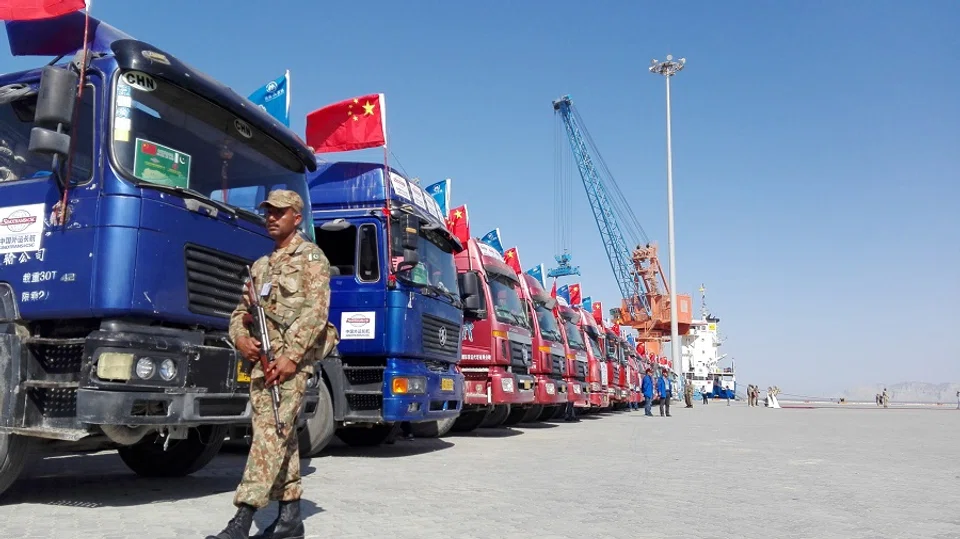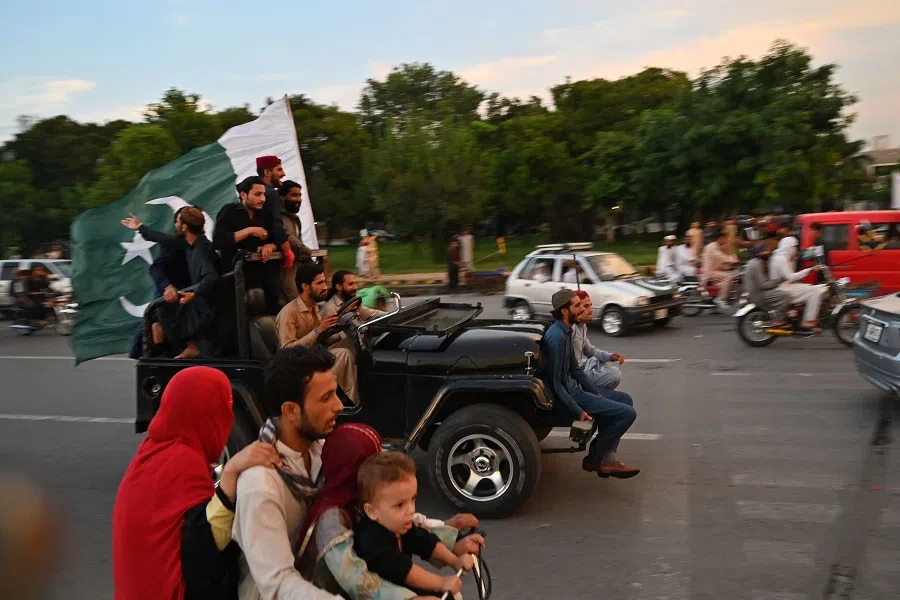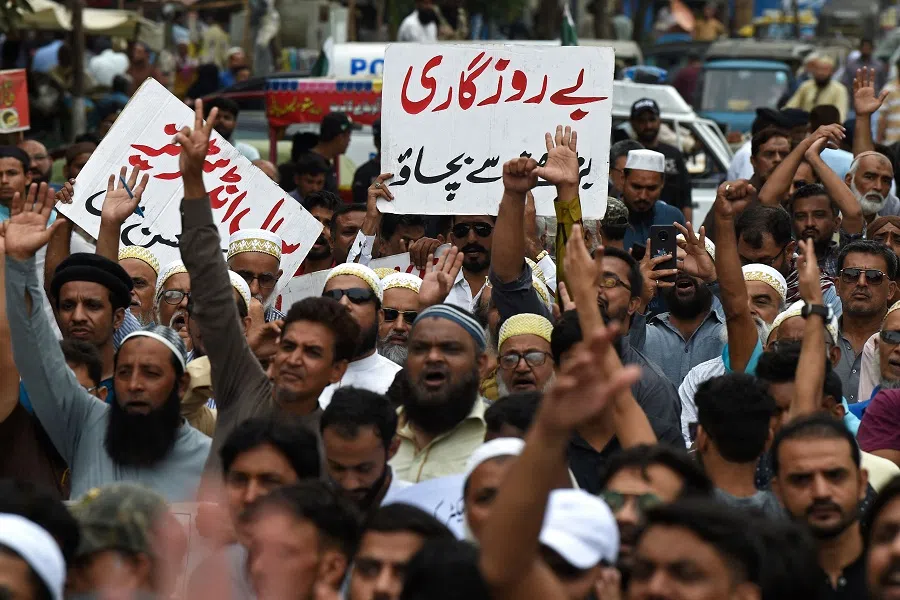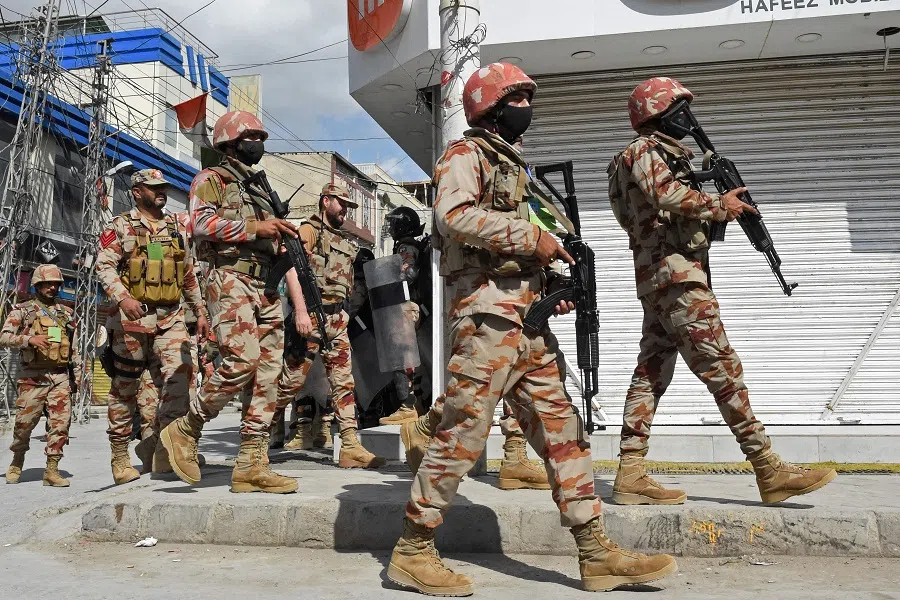Why Baloch separatists in Pakistan want China's BRI out
With more attacks on Chinese nationals threatened by Baloch separatists in Pakistan, Beijing has pressured Islamabad to take foolproof security measures to protect its nationals and interests in the South Asian country. Columnist Syed Fazl-e-Haider explains.

Following the attack on a military convoy carrying Chinese engineers on 13 August in Gwadar port city in Pakistan's southwestern Balochistan province, the outlawed Balochistan Liberation Army (BLA) - a separatist group - has given China a 90-day ultimatum to close down its development projects and quit Balochistan.
Two BLA attackers were killed as the Pakistan security forces repulsed the attack, which was carried out just two weeks after Islamabad and Beijing celebrated the tenth anniversary of the US$62 billion China-Pakistan Economic Corridor (CPEC), the flagship project of China's Belt and Road Initiative (BRI).
BLA spokesman Jayand Baloch, in a detailed statement posted on social media and WhatsApp groups in Urdu language, threatened China to get prepared for more attacks from BLA militants if it fails to roll back its development programme (CPEC) in Balochistan in the next three months. On the other hand, Beijing has asked Pakistani authorities to ensure the safety of its nationals, institutions and projects in the country.
The worsening security landscape has slowed down the pace of Chinese-funded projects, raising their financial costs in the South Asian country. There are a number of projects under CPEC including the construction of more berths and oil terminals at Gwadar port and the strategic Gwadar-Xinjiang oil pipeline, which have either been halted or delayed mainly because of security concerns.
... China is seen by Baloch insurgents as Islamabad's partner in the alleged exploitation and occupation of the province.
Why is BLA targeting Chinese?
BLA is a militant group fighting for the independence of Balochistan province against the state of Pakistan.

Like other Baloch separatist groups, BLA sees Islamabad as an occupier in Balochistan and an exploiter of its resources. Being the largest foreign stakeholder in Balochistan, China is seen by Baloch insurgents as Islamabad's partner in the alleged exploitation and occupation of the province. BLA has warned Beijing several times against signing more deals with Islamabad for the development of CPEC.
Of course, Balochistan has genuine grievances against the centre in Pakistan's federation. The least developed but resource-rich province suffered decades of neglect under successive regimes in Islamabad. The socioeconomic indicators are appalling in the province where a sense of alienation and deprivation among Baloch has worsened with the passage of time.
Islamabad sees BLA and other Baloch separatist groups as India's proxies, which are active in sabotaging the CPEC.
The BLA's fresh threat has further aggravated China's security concerns in the South Asian country, as the separatist group has been involved in carrying out high profile attacks on Chinese nationals in Pakistan. Last year, a woman suicide bomber of BLA blew herself up outside the Confucius Institute of the Karachi University in the southern port city and killed four people, including three Chinese teachers and their Pakistani driver. In 2018, the BLA carried out an attack on the Chinese consulate in Karachi. In 2019, the separatist outfit attacked Chinese tourists at the Pearl Continental Hotel in Gwadar.

Pakistan accuses its arch-rival India of funding and abetting Baloch rebels, an accusation India denies. Islamabad sees BLA and other Baloch separatist groups as India's proxies, which are active in sabotaging the CPEC. India is upset by Chinese presence in Gwadar and it has been opposing the CPEC on the ground that it traverses the disputed territories of Gilgit Baltistan claimed by India.
China wants foolproof security
The recent surge in attacks by Baloch separatists and Islamists has worsened the overall security situation in Pakistan. What Beijing actually wants is foolproof security for its nationals and projects in Pakistan, particularly Gwadar port, which is the key component of the CPEC. The strategically located Arabian Sea port, which gives China access to the Middle East, is also part of China's grand energy security plan.
Without foolproof security, China would not be able to implement its plans to improve connectivity between China and the Middle East by building highways, railways and energy pipelines connecting Gwadar port with Western China.
How seriously will Islamabad take the BLA threat and what steps may be taken by Pakistani authorities to ensure the protection of Chinese interests?

There is a possibility that Islamabad could reconsider the option of fencing Gwadar port city. In 2020, Pakistani authorities proposed to build a fence in Gwadar port city in a move to provide foolproof security to the Chinese nationals and their interests in Gwadar port. Under the proposal, two entry points were proposed to the fenced part of the port city and more than 500 surveillance cameras were to be installed across the port city. The fencing project was supposed to change the security dynamics in the port city.
Local people however fiercely opposed the fencing of Gwadar, as they feared that it would cause relocation of the local population from Gwadar, disturbing the demographic balance in the port city. Local politicians contended that the fencing project would turn Gwadar into a gated community, intensifying the feeling of alienation among locals. The government had to abandon the fencing project because of resentment from the locals.
A full-fledged military action backed by China may be launched by Pakistan's armed forces against separatists in the coming days.
There is a possibility that Beijing would provide modern weapons and technological assistance to Pakistan in order to crush BLA and other Baloch rebel groups attacking Chinese nationals. Even voices in China have been raised to suppress BLA. Last year, the former editor-in-chief of Global Times Hu Xijin said on Twitter, "The BLA will definitely be more resolutely annihilated. I support Chinese military to launch direct air strikes against this terrorist organisation's camp after getting approval of the Pakistani government."
A full-fledged military action backed by China may be launched by Pakistan's armed forces against separatists in the coming days.
Peace is the actual key
It is after all peace that will bring prosperity and development, not the multi-billion development projects that will restore peace and normalcy in the restive Balochistan.

Pakistan needs to negotiate with Baloch rebels by pursuing a policy of appeasement and make every possible effort to bring them into the national mainstream. The country should announce amnesty for Baloch separatists in return for their surrender to the state authority.
Islamabad should seriously address Balochistan's grievances and their reservations about the China-funded development process. It is the local stake and the locals' ownership of the CPEC that will actually make it secure and a game changer both for China and Pakistan.
Related: China's overseas lending needs a full-fledged debt restructuring | The India-Pakistan saga at the SCO foreign ministers' meeting: The China factor | Chinese researcher: How to protect the BRI and keep Chinese enterprises overseas safe | China's urgent need to safeguard lives and investments along BRI





